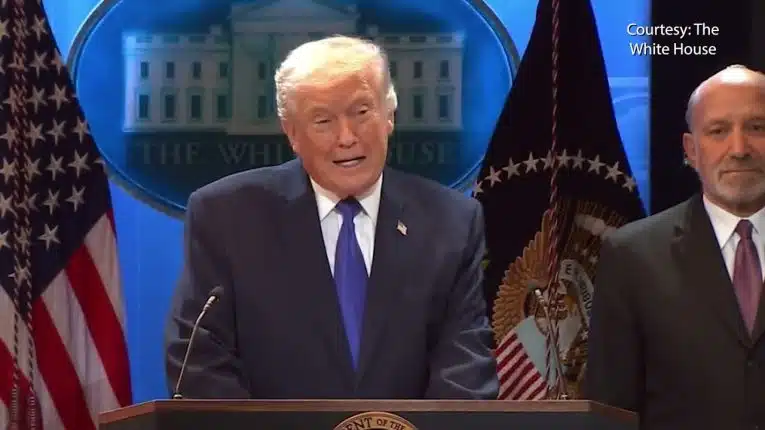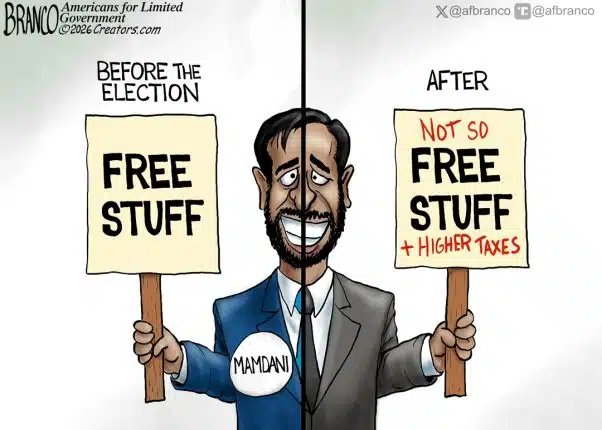Diamond and Silk, two pro-Trump commentators, have scored a significant concession from Facebook after the social media site labeled their videos “unsafe to the community.” The pair say their social media traffic was doing great but that suddenly it had been throttled in recent months, with many users no longer able see the pair’s content on their newsfeeds.
After months of attempting to reach out to the social media giant, they finally received a reply, stating that their content had been deemed “unsafe,” causing the video creators, Lynnette “Diamond” Hardaway and Rochelle “Silk” Richardson, to come forward. But Facebook may finally be changing its tune.
A Facebook spokesperson told Fox News, “We are aware of this issue. We are reaching out to the creators of Diamond & Silk to try and resolve this matter.” That was after the pair appeared on Fox to raise the alarm bell over the throttling. UPDATE: But maybe not. Diamond and Silk on Facebook stated on April 10, “Let us be clear; Facebook has NOT communicated directly with Diamond And Silk. We haven’t spoken to Mark Zuckerberg or any representative from Facebook.”
The concession stands in stark contrast to how Facebook dealt with its labeling Breitbart.com with a Wikipedia description that it is a “far-right” news outlet that is “intentionally misleading,” a description that now appears on every post Breitbart puts on Facebook like a scarlet letter. It has no resemblance to reality. Breitbart is fairly mainstream publication where conservatives can go to get news. One might disagree with what they put out there, but they are accountable to facts and have a thorough editorial process. Yes, it publishes opinion pieces, but those are held to similar standards and there isn’t a newspaper that doesn’t have editorials. They have done nothing to be labeled political extremists by Facebook, but there it is.
In the meantime, Facebook hosts pages for Antifa groups all over the world, a group whose stated tactic is to commit political violence against its opponents. They bear no such moniker as “violent” or “unsafe” or even “far-left” even as the group is under active criminal investigation for its many attacks.
There is absolutely a double-standard at Facebook. Looking elsewhere, just look at how it has handled fallout from Cambridge Analytica, which was accused of “harvesting” data from Facebook users to support President Donald Trump’s campaign in 2016, as if that was unusual.
In truth, as expertly reported by Chris Kavanagh at Medium.com, Cambridge developed an app, a personality quiz, that took advantage of a Facebook feature that allowed app developers to also get information on the friends of people who downloaded the app. It was called “friends permission.” Thousands of app developers were using it without much controversy for years.
Facebook eventually discontinued the practice in 2015 but by then, the firms that had already gathered data would have retained it.
But it was not much different than the way websites use advertiser cookies to gather data on website visitors. Some sites will even refuse to serve up the content unless you switch off your ad-blocker. That’s because they are gathering data for ad purposes. They are able to customize that data when advertisers purchase ads on their sites that can target based on user interests, say, what stories you read, the same exact thing Facebook does, and arguably with far less transparency.
So why is Facebook being targeted for something app developers were allowed to and even encouraged to do for years as a part of the social media company’s API and is increasingly common on websites across the Internet, not just Facebook?
And why has Facebook done such a poor job of defending itself against what appears to be a scurrilous attack?
The outward appearance is that the only reason Facebook is being targeted with potential regulatory action is because data was supposedly used to help President Trump win the election. But who cares? That’s not a crime.
Similarly, here are thousands of apps made for Facebook that gather and are still gathering data.
In the meantime, that data is used by all political actors. Right now, it’s easy-peasy to just buy an ad and target it to whoever you want. You don’t need an app. Want to target Donald Trump supporters on Facebook in 10 states? No problem. Just buy an ad and target it to followers of the President’s page. Want to go at Bernie Sanders supporters instead? Sure.
That’s just the basic functionality of its ads manager, and there’s nothing wrong with it. In fact, followers of non-political pages can be targeted with political ads. They never “signed up” for political ads, but there is not a dimension or characteristic that cannot be targeted with an ad. For example, want to target Millennials who like Apple with a message about tech policy? Go for it.
Carol Davidsen, one-time Director of Integration & Media Targeting at Obama for America, tweeted in March how Facebook allowed the 2012 Obama campaign to do things with its data that no one else would have been allowed to: “Facebook was surprised we were able to suck out the whole social graph, but they didn’t stop us once they realized that was what we were doing… They came to office in the days following election recruiting [and] were very candid that they allowed us to do things they wouldn’t have allowed someone else to do because they were on our side.”
Was that an in-kind contribution to the Obama campaign? Even if it was, presuming the campaign actually got access to things nobody else is allowed to access, so far, no allegations have been leveled against the Obama campaign for “harvesting” data. Or that Facebook violated user privacy by using that data to target Obama supporters’ friends.
Because it’s a silly allegation. Everyone who was using Facebook’s API at the time could target friends of users.
In short, the only apparent reason that Facebook is in the regulatory crosshairs is not because its data was used politically — it’s always been used politically by Democrats and Republicans — but because Facebook’s data was used on behalf of President Trump in 2016.
It’s being attacked for not being anti-conservative enough. Not anti-Trump enough.
The data might not have even been any good. The Trump campaign ended up using RNC data for voter identification, not Cambridge. But there you have it. They’re Republicans! Get ‘em!
And Facebook appears to be capitulating.
A media mob is attempting to bully Facebook into acting even more to shut down conservative pages and groups. Diamond and Silk may be achieving some small yet important concessions right now for their own page, but it is clear that there is a wider effort afoot to censor conservative voices everywhere on social media platforms, not just Facebook, with shadow-banning and other types of throttling.
Facebook must resist that. The reason it has thrived as a platform was because users could generate their own content and promote it. It’s a great place to do promotions. But groups that might normally defend Facebook on free market grounds are now silent as the regulators are getting ready to pounce, because they feel they have been treated unfairly by Facebook because of political bias. Now they have no friends.
Facebook would be far better served by acting as a neutral actor politically. It need not filter out politics. Just stop playing favorites. Because at the end of the day, Facebook is an ad company, and in a free market setting on the Internet, there’s nothing wrong with targeting ads toward individuals based on characteristics selected by the advertiser.
Robert Romano is the Vice President of Public Policy at Americans for Limited Government.







